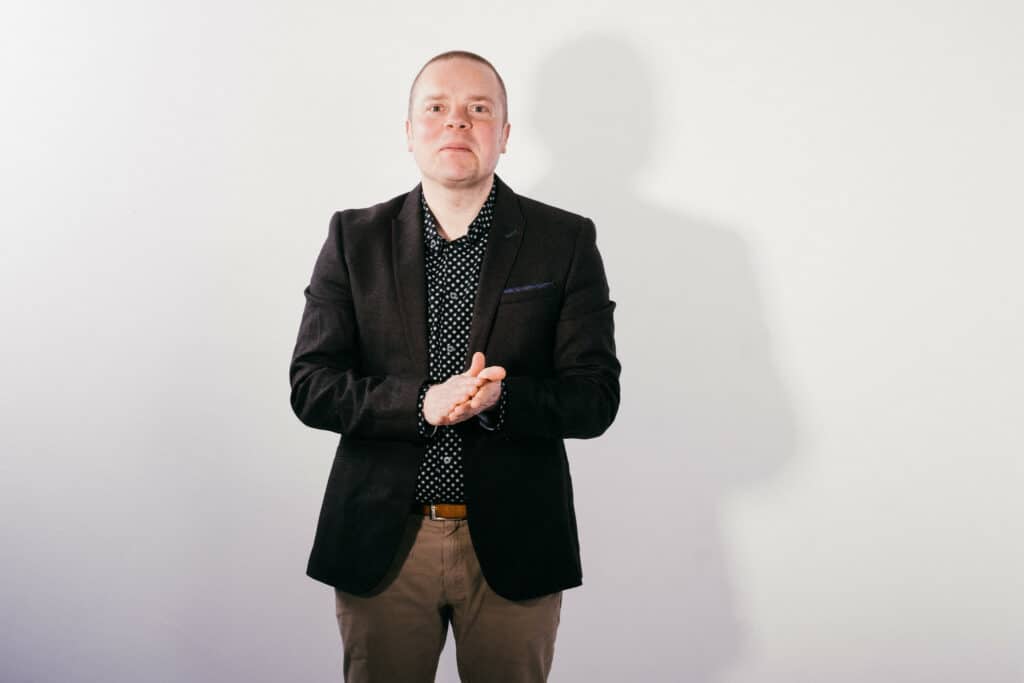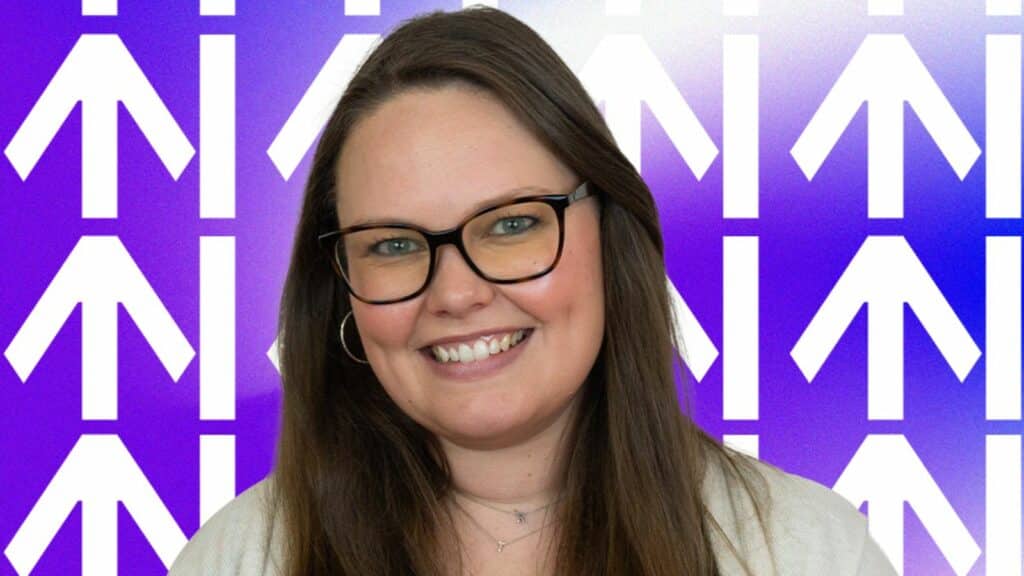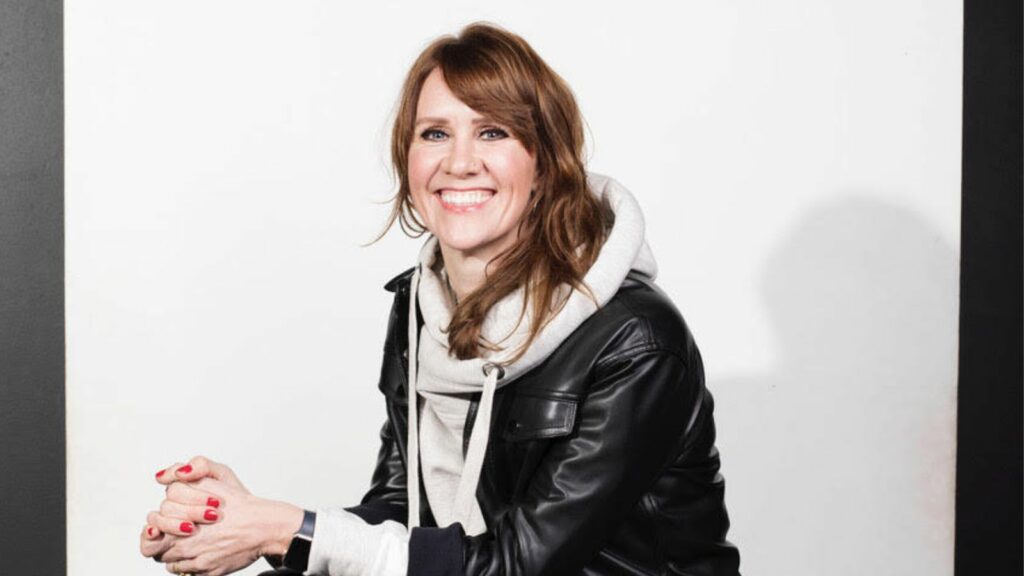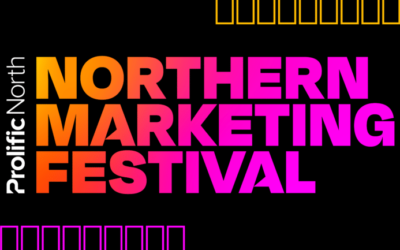Home to a mix of challenger and established brands from Greggs, Barbour, Atom Bank to the UK’s ‘oldest’ independent agency Cravens, the North East may be ‘thriving’ with all the right ingredients as a marketing and creative hub. But there’s work to do to.
“It’s under the radar,” Sarah Waddington CBE, non-exec director at a number of creative agencies and founder of FuturePRoof and Socially Mobile, tells Prolific North. “We just concentrate on what we’re doing through good work and getting the right talent in.”
Since the late 90’s, she says the North East has transformed over the years into a “thriving hub for PR and marketing consultancies”.
“In Newcastle, a handful of integrated creative agencies dominated until the recession in 2008, when the marketplace fragmented and was flooded by mid-size specialist firms and newly formed sole traders. Today offers a real mix and freelance talent is abundant,” she explains.
For Katie Stewart, interim head of performance at SEO, content marketing and digital PR agency NORTH, Newcastle has a status as a “hub for innovation, creativity and industry growth”, bolstered by those brands now based across the North East.
“The presence of iconic brands like Greggs, Barbour and Ringtons not only supports the local economy but has helped to attract the best talent and investment to the area.”
But for Claire Riley, chief corporate services officer at NHS North East and North Cumbria who joined the NHS over 17 years ago, there’s been a continuous battle against archaic preconceptions that it’s “bleak” up North – especially in the North East.
“That tongue in cheek reference that it’s grim up North – it wasn’t so long again that newspapers would write about how bleak it is here. It’s not. Look at the Angel of the North and how transformative that was for the region. The Tyne was once a no-go area and now it’s an artistic hub which includes Sage and the Baltic.”
With underground creatives to the likes of The Pitmen Painters, who produced hundreds of paintings on the life of mining communities in Northumberland, to the world of fashion with designer Bruce Oldfield famously designing for the Princess of Wales, creativity has oozed in the North East “regardless of how poor the area has been”.
“I think the North East has a huge abundance of creativity. Very often, it’s the people outside of the region that want to put us down. But it doesn’t stop us.”
Ian Davidson is chairman of Cravens, a Newcastle-based creative consultancy formed over 75 years ago that claims to be the ‘oldest’ independent agency in the UK. As a “full blown Geordie”, with his grandfather formerly playing for Newcastle United, he’s fiercely protective over what the region has to offer.
“We sometimes don’t think we’re quite as good as London and the rest of the country. I don’t f*cking agree with that because that’s a mindset. That’s an attitude. I see no reason why we should be second best at anybody, at anything. We’ve got some very talented people.”

To “boost the reputation” of the marketing and creative industries across the North East, he believes there needs to be more ambitious briefs from brands and more “outstanding” work emerging from the region.
“I don’t think some companies across the region push hard enough or try hard enough. I spent most of my career working in London or in the US, the work coming out from the region could be higher.
“We just need to raise the bar.”
“We have a cultural glue that sticks us together“
As one of the UK’s “fastest-growing economies” according to Invest North East England, there are over 71,000 businesses operating across the region. A slice of that includes creative and marketing focused companies from the likes of Drummond Central, Visualsoft, Enigma Interactive, Cravens and latest arrival Omnicom Media Group (OMG) UK – announcing its plans last year to create up to 170 jobs over the next three years.
Bonded, launched by four ex-network agency figures in 2021 and named as one of Prolific North’s Independent Agencies to Watch in 2023, is another of those businesses.
For co-founder Steven Underwood, having a “close-knit” and supportive community in the region has helped to fuel some of the agency’s early successes. Working alongside Cravens to pitch and win work for the Rugby League World Cup in 2022, it became a “great flagship client” for Bonded to secure early on in the agency’s journey.

“It’s fair to say I don’t think we’d have won that without Cravens. I think it’s the same the other way around, going in together and really connecting working closely on that pitch together and [Cravens] are based only a five minute walk away.”
But it hasn’t always been that way, according to Sarah Waddington.
“If you were to ask me in the 90’s, agency owners were a bit more aloof. They knew each other but there wouldn’t have been collaboration in the way that we now know it. They would have operated in silos and tried to deliver that in a different way and wanted to keep that for themselves.
“You don’t see that now. I can’t think of one agency in the Newcastle area who would operate like that.” As a founder herself, she believes one of the region’s strengths is the “generous spirit” from Geordies: “Just by getting out and about, having a coffee and being visible, you can tap someone up and people are generous in that way.”
While Ian Davidson from Cravens agrees there is collaboration across the region, with how competitive the industry continues to be, he believes it could “go a little further”
“I think there’s an opportunity at the moment with a new mayor and a new point of view of the North East to look at all those things and maybe have a couple of initiatives to see what difference that might make.”
But collaboration has played a major role in impactful marketing campaigns in the NHS across the North East too, says Claire Riley. From reducing around 50,000 GP appointments through an awareness campaign around the support pharmacies can offer women with urinary tract infections (UTIs) to marketing campaigns helping to attract more junior doctors to live and work in the North East, being able to tap into a network of regional hospital trusts showcases the region’s “opportunity of collaboration”.
“We have a cultural glue that sticks us together. We may fall out with each other but we’re still North East and Cumbria and we’re sticking together. Other regions don’t necessarily have that strong glue.
“We’re never going to be able to compete with the likes of Oxford or London if we do it in isolation of each other. The only way we can compete is being loud and proud across our region and being consistent.
“The marketing effort needs to be quite compelling with narrative, imagery and approach to really attract behavioral change or for people to move into the area.”
“It really irritated me at the time”
With two Russell Group universities – Durham and Newcastle – and dozens of colleges and creative pathways or initiatives, there appears to be a solid talent pipeline across the region too.
“This means that there’s no shortage of up and coming talent available to local businesses and start-ups to fill junior roles and encourage young professionals to grow their careers. Not only that, but the city boasts plenty of worthwhile graduate and placement schemes which have helped to facilitate knowledge sharing, skills development and the growth of local talent within the region,” says Katie Stewart from NORTH.
But a “significant challenge” is competition for talent outside of the region, with other cities often offering higher salaries with remote working opportunities.
“This promotes challenges for talent retention within the region’s creative, digital and tech sectors,” adds Stewart. “Newcastle might not always be perceived as a hub for design and technology, which comes with its own challenges. The lack of awareness around these thriving industries in Newcastle means that this can pose a challenge in attracting investment, talent and wider attention from stakeholders within the sector.”

For Ian Davidson at Cravens, times have changed since he was growing up when it comes to those opportunities. “I couldn’t get a job in the North East in this industry because they just couldn’t hire graduates,” he says. “It really irritated me at the time. Now, we probably have at least seven graduates in our team and most of the team are from the North East except from a small team in London and some really good people from other parts of the country.”
More could be done to stop the ‘brain drain down to London’ after students leave university, says Steven Underwood at Bonded, who opted to stay in the region after graduating from university.
“I think we need to try and improve the visibility of the great work done by brands and agencies in the region to attract more talent into marketing. We’ve got some really good people, businesses and agencies here, whilst they do collaborate there could be more.
“Let’s put more of a united front on to attract good people into marketing and keep them here in the region.”
But Geordies will “always come back home” he says. “It’s great because often people who have been in the global agencies in London, and had five to 10 years of experience doing that, they come back and they’re able to apply that learning to an agency based here.”
As someone who made the decision to return home to Newcastle after studying over in Leeds, Sarah Waddington says she discovered agencies in the North East are very focused on “really nurturing homegrown talent” and attracting graduates. Both regionally and more widely across the industry, more needs to be done to attract school leavers and widen that talent pool even further.
“The industry generally is not good at teaching school leavers about the diverse jobs available in our creative industries and the training to help them get on the ladder. If you don’t have a formal education, I think this is an industry that is quite tricky to get into and move up in.”
As a board member on the North East LEP, responsible for promoting and developing economic growth in the region, Steven Underwood says it’s “not a secret” that there’s a digital and marketing skills gap when it comes to mid-level to senior talent.
“It’s quite challenging if you want to scale a business to be able to easily find talent.”
“There is an assumption that we are cheaper because we’re here in the North”
The region offers a “significant cost advantage” with lower operating costs, affordable rents and manageable living expenses for the industry’s workforce, according to Katie Stewart.
But this can be viewed as a double-edged sword in some cases, argues Sarah Waddington.
“There is an assumption that we are cheaper because we’re here in the North. Sometimes a regional office is set up for diversity of thought but actually it’s a fulfillment center. For me, that’s a detrimental perspective because we are equal, if not better to many other places, and should be seen as such.
“We do price competitively but I find it frustrating that sometimes it’s ‘let’s look to the North to offset some of the costs’. That’s probably the biggest challenge and I think it can be a bit disrespectful, to be honest.”
Whilst Katie Stewart believes the city’s “strategic location and international connectivity” offers opportunities for businesses to expand into global markets, there’s room for improvement there too, says Sarah Waddington.

“There are a lot of agencies around the North East that do international work but you still have to travel to a connected hub like Schiphol or London. It’s being dealt with as part of the devolution deal but that’s been slow. Once that’s dealt with, we’ll be in an even stronger position than we are now.”
Although some of these challenges “won’t change things overnight”, with more ambition across the region there’s no reason it “can’t compete with the best of the country and rest of the world”, says Ian Davidson.
“I don’t think there are many opportunities where there is a showcase of creativity to help raise the standards and look at how we, as a region, can do better.”
To do that there needs to be more collaboration to “improve the visibility” of the marketing community across the North East, through more events to promote the work emerging from the region, agrees Steven Underwood.
Don’t miss Prolific North’s first ever Newcastle event at Northern Marketing Festival on 24 June featuring an unmissable keynote session with Dan Ginger, director of brand, marketing & digital media at Newcastle United and many more leaders sharing marketing insights and trends across the North East. Secure your tickets here before they go!












